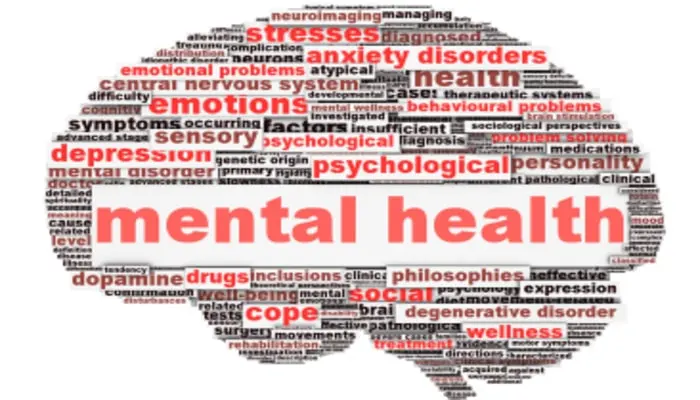Sugar: The Sweet Deceiver – Unmasking Its Health Risks
In our modern food landscape, sugar reigns as one of the most beloved—and vilified—ingredients. Found in piles of products ranging from breakfast cereals to seemingly “healthier” snack options, sugar is deeply woven into our culinary culture. However, lurking beneath its sweet veneer lies a trove of health risks that can profoundly impact our overall well-being. This article delves into the complexities of sugar, spotlighting its types, health implications, and practical ways to reduce its intake.
Understanding Sugar: Types and Sources
When we refer to sugar, we typically think of sweet, crystalline substances that enhance the flavor of our food. However, sugar comes in various forms and classifications:
1. Natural Sugars
These sugars occur naturally in whole foods and include:
- Fructose: Found in fruits
- Lactose: Found in milk and dairy products
- Glucose: Found in many carbohydrates
Though they are consumed in whole food sources, natural sugars come packaged with beneficial nutrients, fiber, and water, making them a healthier option.
2. Added Sugars
These are sugars added to foods during processing or preparation:
- Table Sugar (Sucrose)
- High-Fructose Corn Syrup
- Honey and Agave Nectar
Added sugars lack nutritional benefits and significantly contribute to caloric intake without promoting satiety, leading to potential overeating.
The Recommended Limit
Health organizations like the American Heart Association recommend limiting added sugars to:
- 6 teaspoons (25 grams) for women
- 9 teaspoons (38 grams) for men
Despite these guidelines, studies reveal that the average American consumes around 17 teaspoons (71 grams) of added sugar daily.
The Health Risks of Excess Sugar Consumption
High sugar intake has profound implications for both physical and mental health. Here are some key risks associated with excessive consumption:
1. Weight Gain and Obesity
Added sugars contribute to excessive calorie consumption without satiety. Sugary beverages, for instance, are notorious for their empty calories, which can lead to weight gain and the subsequent health risks associated with obesity.
- A study published in Obesity confirmed that increased consumption of sugar-sweetened beverages is directly linked to higher body weight among children and adolescents.
2. Chronic Diseases
Excessive sugar consumption has been linked to several chronic conditions:
- Type 2 Diabetes: High sugar intake increases insulin resistance, leading to elevated blood sugar levels over time. Research published in the Journal of the American Medical Association discovered a significant association between sugary drinks and the risk of developing type 2 diabetes.
- Cardiovascular Disease: Consuming large amounts of sugar, particularly from sugary beverages, is linked to increased heart disease risk by raising blood pressure, promoting inflammation, and causing obesity-related issues.
- Liver Disease: High fructose consumption can lead to non-alcoholic fatty liver disease (NAFLD), as excess fructose is metabolized into fat in the liver.
3. Dental Health Issues
Sugar plays a pivotal role in the development of dental caries (cavities). Bacteria in the mouth feed on sugar, producing acids that erode tooth enamel.
- The British Dental Journal has documented the correlation between high sugar diets and increased cavity prevalence, especially in children.
4. Mental Health Implications
Recent research suggests a connection between sugar and mental health concerns. Regular high sugar intake is associated with mood swings, anxiety, and depression.
- A study in Psychological Medicine indicated that diets high in sugars and refined carbohydrates are linked to a higher risk of developing depression. The addiction-like effect of sugar can lead to mood fluctuations, resulting in emotional distress.
Recognizing Hidden Sugars
One of the challenges in reducing sugar intake is identifying its hidden presence in processed foods. Common names and forms of sugar include:
- Sucrose
- High-fructose corn syrup
- Agave nectar
- Maltose
- Dextrose
- Corn syrup
To help identify added sugars, carefully read Nutrition Facts labels. Foods with high sugar content may list sugar among the first few ingredients.
Tips for Reducing Sugar Intake
- Start Gradually
Reducing sugar intake doesn’t have to be immediate. Begin by cutting back on sugary beverages and progressively decrease sugar in your meals and snacks. - Choose Whole Foods
Incorporate more whole, unprocessed foods into your diet. Fruits, vegetables, whole grains, nuts, seeds, and lean proteins provide essential nutrients and naturally lower sugar content. - Swap Sugary Drinks for Water
Sugary drinks can be significant sources of added sugar. Replace sodas, energy drinks, and sweetened coffees with water, herbal tea, or infused water with fruits for a refreshing alternative. - Explore Natural Sweeteners
When you need a touch of sweetness, explore using natural sweeteners like stevia, monk fruit extract, or small amounts of maple syrup or honey, which can offer flavor without the same negative health impacts as refined sugars. - Read Food Labels
Develop a habit of reading ingredient lists on packaged foods. Choose products with little to no added sugars, and opt for those sweetened with natural alternatives.
Conclusion: The Path to Healthier Choices
While sugar can provide a momentary burst of pleasure, its long-term health implications cannot be ignored. Understanding the hidden dangers of added sugars empowers individuals to make informed dietary choices that support overall health and well-being.
By gradually reducing sugar intake, opting for whole foods, and being vigilant about hidden sugars, we can unlock a healthier, more balanced lifestyle. The road to better health is paved with mindful choices and an awareness of what we consume. As we unmask the deceptive nature of sugar, we open the door to a life defined not by cravings but by vitality and wellness.
For more guidance on sugar and its impact, consider checking resources like the American Diabetes Association or articles on nutrition from Harvard Health.





